Let’s say you’ve just made the winning bid at an auction on the house of your dreams. What do you do next? Let’s look at the legal steps you’ll need to take to seal the deal on your new home.
Real estate property is transferred from a vendor to a purchaser by a procedure called conveyancing. The first thing you’ll want to know is the cost of conveyancing – NSW?
The cost of conveyancing – NSW will vary but, as a general rule, conveyancing cost – NSW will range between $700 and $2,500. This may or may not include other professional fees (e.g. settlement agent fees, PEXA fees) and/or a disbursement fee for the cost of searches and other out-of-pocket expenses.
How do I find a reliable conveyancer in NSW?
Ask your real estate agent to recommend a conveyancer. As they handle property transactions on a daily basis, they likely know of several conveyancers who do good work and where the cost of conveyancing – NSW is reasonable.
Alternatively, if you already own property, you may know a conveyancer. Or, if you’re a first-home buyer, your family and friends might be a good place to start.
You should also verify that the conveyancer you’re employing is a member of the NSW Division of the Australian Institute of Conveyancers (AICNSW). All AICNSW members are conveyancers licensed by the NSW Office of Fair Trading. It requires two years of study and another two years of supervised practical experience before becoming eligible for a conveyancer licence in NSW.
The AICNSW maintains a list of conveyancers throughout NSW. The NSW Government also maintains a website that allows you to check the licensing status of conveyancers in the state.
Alternatively, you may decide to use a conveyancing solicitor to do your conveyancing. This option provides you with an expert in property law who can take care of any legal matter that arises in the transfer of property between the vendor and yourself.
Don’t forget that important question: How much does conveyancing cost in NSW? But remember that the quality of service is also an important consideration.
Entry Conveyancing has the experience and expertise to ensure you take possession of your new property without any unexpected surprises. Their refined conveyancing processes ensure you’ll be drinking champagne on the floorboards of your new property just as you planned. They also charge a fixed-price flat fee with no hidden costs, so there are no surprises there either.
Let’s look at the process of purchasing a property so you’ll know what to expect.
Stage. 1: Sign on the dotted line
Once your offer is accepted, the first step is to formalise the agreement through a contract of sale prepared by vendor (seller).
If you bought the property at auction, that’s because you submitted the highest bid above the reserve price. This is the minimal amount acceptable for the sale of the property.
While the reserve price is not disclosed before auction, the auctioneer will announce when the bidding reaches the reserve in order to encourage additional competition among potential buyers.
If you submit the winning bid at auction, in most cases you’ll sign the contract immediately after the auction. If you’ve purchased the property at a private sale, you’ll sign once the terms have been mutually agreed.
You’ll likely find that the contract requires a deposit to be delivered on signing. The usual amount is 10% of the property’s purchase price.
Stage 2: Time to keep cool
NSW law provides for a ‘cooling-off period’ after some contracts are signed. This is designed to enable property buyers to rethink a purchase made on impulse.
For private purchases of existing properties, the cooling-off period extends over five business days. A longer cooling-off period of 10 business days applies to properties sold ‘off the plan’ as well as special conditions such as a sunset clause.
Keep in mind that there is no cooling-off period for a property bought at auction, or when contracts of sale are signed and exchanged on the same day a property is passed in at auction.
In order to exercise your cooling-off right, you must notify the seller within the five-business-day period. The seller is then required to return your deposit, but is entitled to deduct 0.25% of the purchase price. That’s works out to $1,250 on a home sold for $500,000.
 Stage 3: The conveyancing process
Stage 3: The conveyancing process
It’s worthwhile to organise a conveyancer in advance before you bid on, or buy, a property. This will save you scrambling to find someone at the last minute. Instead, you’ll be able to appoint a conveyancer, or conveyancing solicitor, with a track record of performance that gives you confidence.
Finding a conveyancer before you purchase a property means you’ll get an accurate estimate of the cost of conveyancing – NSW. You can then factor conveyancing cost – NSW into your budget.
One of the important tasks your conveyancer will perform is a title search to verify whether:
- the vendor has legal ownership of the property and the right to sell it
- easements exist that give third parties access to the property for specific purposes. For example, a right of entry for gas workers.
- there are legal or financial impediments that might obstruct the legal change of property ownership, such as:
- caveats – legal claims lodged with the courts indicating that parties other than the vendor have an interest in the property, or are owed money by the vendor
- unresolved mortgage debt
- covenants are attached to the title that place limits on the owner’s ability to exercise personal preferences about the home’s external features
- other special conditions in the contract of sale have been fulfilled
- council rates, land tax and water rates are paid up to the date of property transfer.
Once your conveyancer or solicitor has checked all these issues, they’ll draw up the legal documents for the formal transfer of ownership.
Stage 4: Requisitions on title
Requisitions on title enable property purchasers to enquire about any pertinent information that may not have turned up during the title search. They’re an effective way to double check that no unexpected problems will interfere with the legal transfer of ownership.
Step 5: Transfer duty
What is known as stamp duty in other Australian states is called ‘transfer duty’ in NSW. This is a state government tax imposed on the purchaser of a property. You’ll also owe transfer duty if a property is gifted to you without payment.
Transfer duty is assessed according to the purchase price or assessed value of a property. Following are the current standard transfer duty rates applicable to home purchases in NSW:
Transfer duty rates
| Purchase price/value | Duty rate |
|---|---|
| $0 to $14,000 | $1.25 for every $100 (the minimum is $10) |
| $14,000 to $31,000 | $175 plus $1.50 for every $100 over $14,000 |
| $31,000 to $83,000 | $430 plus $1.75 for every $100 over $31,000 |
| $83,000 to $313,000 | $1,340 plus $3.50 for every $100 over $83,000 |
| $313,000 to $1,043,000 | $9,390 plus $4.50 for every $100 over $313,000 |
| $1,043,000 to $3,131,000 | $42,240 plus $5.50 for every $100 over $1,043,000 |
| Over $3,131,000 | $157,000 plus $7.00 for every $100 over $3,131,000 |
Source: Revenue NSW
First-home buyers may be eligible for a partial or complete concession on transfer duty in NSW.
If you’re classified as a foreign person buying residential property in NSW, you could face an 8% surcharge on your transfer duty.
Step 6: Settlement
On settlement day, your conveyancer and a representative of the vendor will meet to finalise the sale. This may occur fact-to-face, but will most likely occur online through the PEXA digital property settlement platform. If PEXA is used, the final exchange of documents and monies will take place online.
Once the documents are exchanged, they’ll be entered into the General Register of Deeds at NSW Land Registry Services. For this service, NSW Land Registry Services will charge you a lodgement fee of around $460, although this amount is subject to periodic change. There are also additional costs that may, or may not, apply to your particular case. The list of available charges can be found in the Land Registry Services 2021/22 Fees Update.
If you purchase your home outright, you’ll receive the Title Deed. But, if you’ve taken out a mortgage for your property, your bank will retain the deed until your loan is paid in full.
Are you looking at the cost of conveyancing – NSW?
You’re in luck because Entry Conveyancing has a team of experts on hand to help with every legal aspect of buying and selling property.
How much does conveyancing cost in NSW? Entry Conveyancing charges a fixed price fee for conveyancing. There are no hidden costs and no surprises.
Contact us today for a free confidential chat about conveyancing.



 Stage 3: The conveyancing process
Stage 3: The conveyancing process
